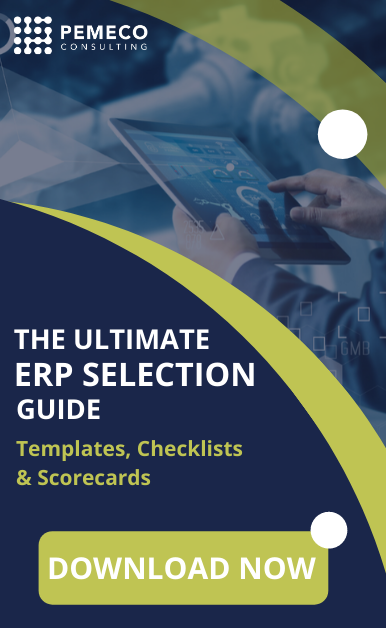Imagine that you owned a chicken that laid one golden egg after another. Then imagine that a thief broke into your barn every day and stole your precious golden eggs. If you caught the thief, you’d probably sue his pants off and consider administering other, less legal forms of punishment. And that’s exactly what Oracle is doing to Rimini Street, TomorrowNow and SAP– the suing part, that is.
Rimini Street recently took the offensive in its legal battle against software, database and server giant, Oracle. In my previous article on this lawsuit, I wrote about Oracle’s claims that Rimini – an independent 3rd party provider of ERP maintenance and support services – operates an illegal business model predicated on computer hacking and theft.

As we close out 2010, I reflect on an ERP system selection project that we’re just now wrapping up in time for the holidays. The client runs a multi-site manufacturing and distribution business. It is a strategic supplier to big-box retailers and leads the market in its product category.
In a recent ZDNet article, Alliances, Referrals, Kickbacks, Reselling: Where’s the independent advice in this?, author Brian Sommer sends a crystal clear message to IT buyers. He says that if buyers want to find the right-fit IT system, they had better ensure the independence and impartiality of their system selection consultants.
If the consultants are not free from bias, he warns, the buyer could end up with a system that fits the consultants’ bottom lines better than its operations.

Companies evaluating ERP solutions may find themselves ensnared in a net of vendor confusion. Selecting the right ERP software from among 15 or 20 seemingly good candidates is a difficult project. So, how does a company go about comparing, contrasting and ranking the various ERP software alternatives? How can it satisfy itself that it is picking a software package that best fulfills its various needs?

Unanticipated ERP license needs. Unexpected ERP add-on modules. Unknown 3rd-party software needs. Surprises like these can lead to ERP sticker-shock and cause buyer’s remorse. Unplanned ERP expenses can throw off budgets, strain resources and, in some cases, cause ERP projects to die. They can even lead an ERP buyer to a system that it would not have otherwise selected had it known the true costs.

Deciding between ERP and best-of-breed applications is no longer an issue that involves a balancing of clear tradeoffs. Over the past few years, ERP vendors have moved into the best-of-breed

For most of 2010, Canadian companies have taken a wait-and-see approach to ERP. According to IT research firm IDC, Canadian businesses are neither jumping headfirst into new ERP applications nor making significant changes to their existing systems.

Our client – a mid-sized manufacturer and distributor – recently participated in ERP software demonstrations. From its perspective, these demonstrations collectively constituted the single-most important phase of its ERP selection project. Why? Because it was our client’s only opportunity to test-drive the ERP alternatives before making a purchase.

